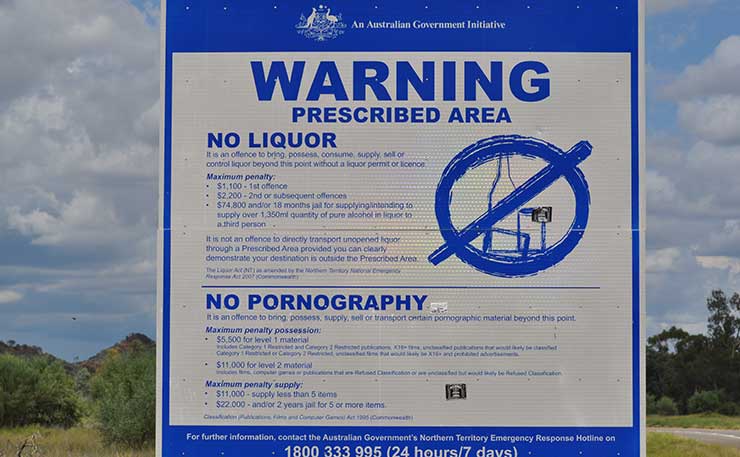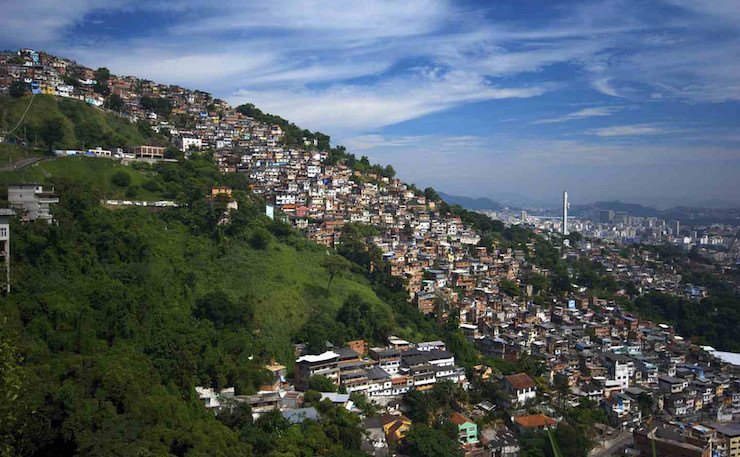The Australian Olympic team arrives in Rio de Janeiro for the Summer Games this week and is bringing a very Australian prejudice with it, writes Ann Deslandes.
As Chef de Mission Kitty Chiller announced in February, Olympic team members will not be permitted to visit favelas, the distinctive communities on Rio’s hillsides often mislabelled as ‘slums’ or ‘shanty-towns’.
Favelas, in Chiller’s words, are to be “no-go zones”, in order to limit the chances of athletes running into danger while staying in the city. As Chiller has since restated, the Olympic authority’s ban on Australian athletes visiting favelas is “a security precaution”. The latter quote was in light of the robbing-by-gunpoint of two Paralympians in the affluent South Zone of Rio in June.
The Australian Olympic authority is the only country to have issued this judgement on favela visits in Rio de Janeiro during the Olympics (and has been followed this week by Chiller’s disparagement of conditions in the Athlete’s Village). It’s such an Aussie thing to do: to throw down that well-travelled global line between ‘them’ (different, disadvantaged, unsafe, most likely criminal) and ‘us’ (civilised, superior, and at risk from ‘them’) and consequently punish anybody who might wander across it. This orientation to the world is particularly attested to by Indigenous people in Australia (the only Commonwealth country not to have a treaty with its Indigenous peoples), and by people who arrive by boat and request asylum (from the only country in the world to enforce the mandatory, indefinite detention of asylum seekers).
The way that Australian authorities tend to draw this line around Indigenous people has been made clearer to more people this week in the Four Corners story about abuse of young people in detention in the Northern Territory. It is also particularly well exemplified by the 2007 Northern Territory Emergency Response, which we now all refer to as ‘The Intervention’.
As New Matilda readers will know, The Intervention began in response to unproven claims that Aboriginal communities in the Territory were in the grip of organised paedophile rings. The Commonwealth Government passed emergency legislation to suspend the Racial Discrimination Act and deploy army personnel to Aboriginal towns, acquiring remote communities, outstations, town camps and townships, and subjecting residents to income quarantining and bans on alcohol and pornography.

Rates of self-harm, violence, and incarceration have ballooned in the Northern Territory under the dramatic changes wrought by the Intervention, while the claims of organised paedophilia that catalysed it were found by the Australian Crime Commission to be baseless.
However, this does not seem to matter in Australia, where Indigenous people are regularly typecast in the white-dominated mainstream media and polity as combative and threatening (as in the case of the outcry when football champion Adam Goodes performed a war cry to celebrate scoring a goal), or mendacious (as in the case of columnist Andrew Bolt’s claim that the systematic and institutional removal of thousands of Aboriginal children from their families, the Stolen Generations, was a myth), or lazy (as in the case of former Prime Minister Tony Abbott supporting the removal of Indigenous people from their homelands on the basis that ‘the Australian taxpayer was subsidising lifestyle choices’ to live in remote areas at a distance from jobs and services). In the context of stigma like this, it seems it is enough simply to be Aboriginal for extraordinary controls on one’s life to be enacted and justified.
For people who arrive to Australia by boat and request asylum, the line takes the immovable form of immigration detention. It has been policy since 1992 in Australia to imprison asylum seekers indefinitely if they arrive by boat, and the well-documented, routine horrors of the detention system are justified in the name of deterrence from this ‘unauthorised’ method of arrival.
Australia’s political leaders continue to stand firm on the need for the policy to repel people from seeking asylum in this manner – even as people arriving from known war zones swallow shampoo and razorblades as their minds break or they are killed and tortured by their overseers in prison; even as the international condemnation continues to roll in. It is far easier to assume that people who arrive by boat are naturally, essentially criminal and thus deserving of such punishment.
That asylum seekers have committed no crime, and that they are being punished with more severity than is levelled at the convicted in Australian state prisons, simply does not matter when stigma is this powerful. As Kurdish journalist Behrouz Boochani, currently interned in Australia’s detention centre on Manus Island in Papua New Guinea writes to us, “What is my crime? Why have you tortured me?”.
When it comes to favela communities in the global eye, the residents of favelas receive the same treatment – as though there is something inherently suspect about being a resident of a favela which makes you a danger to others. The Olympic authority’s claim that favelas must be “a no-go zone” to visitors refers to nearly 1.4 million people who live in these neighbourhoods, around 24 per cent of Rio’s population. For favela community reporting portal Rio Olympics Neighbourhood Watch (RioOnWatch), this language simply “perpetuates favela stigma” with the “portrayal of favelas as inherently savage [and]unpredictable.”
Under the cover of this stigma, as RioOnWatch has also reported, tens of thousands of people have been removed from their homes to make way for the Olympics, and hundreds have been killed by police; mostly young Black men such as 16-year-old Jhonata Alvez of Borel favela, shot dead this month when policemen mistook the bag of popcorn he was carrying for drugs.
By the same token, it is stigma that enables the laws and edicts of the Australia authorities against Indigenous people and asylum seekers who arrive by boat: the idea that there is something inherent about someone who takes a boat to Australia and requests asylum which disqualifies them from the rights and freedoms enjoyed by others. That there is something about someone who is Indigenous in Australia which makes them so naturally suspect that we don’t need to verify claims about their dysfunction before taking exceptional measures to quell it.
This, apparently, is the Australian way. Thanks to stigma, we can look away from brutality and the impunity that follows it – from the Northern Territory to Manus Island to Rio de Janeiro.
Donate To New Matilda
New Matilda is a small, independent media outlet. We survive through reader contributions, and never losing a lawsuit. If you got something from this article, giving something back helps us to continue speaking truth to power. Every little bit counts.





